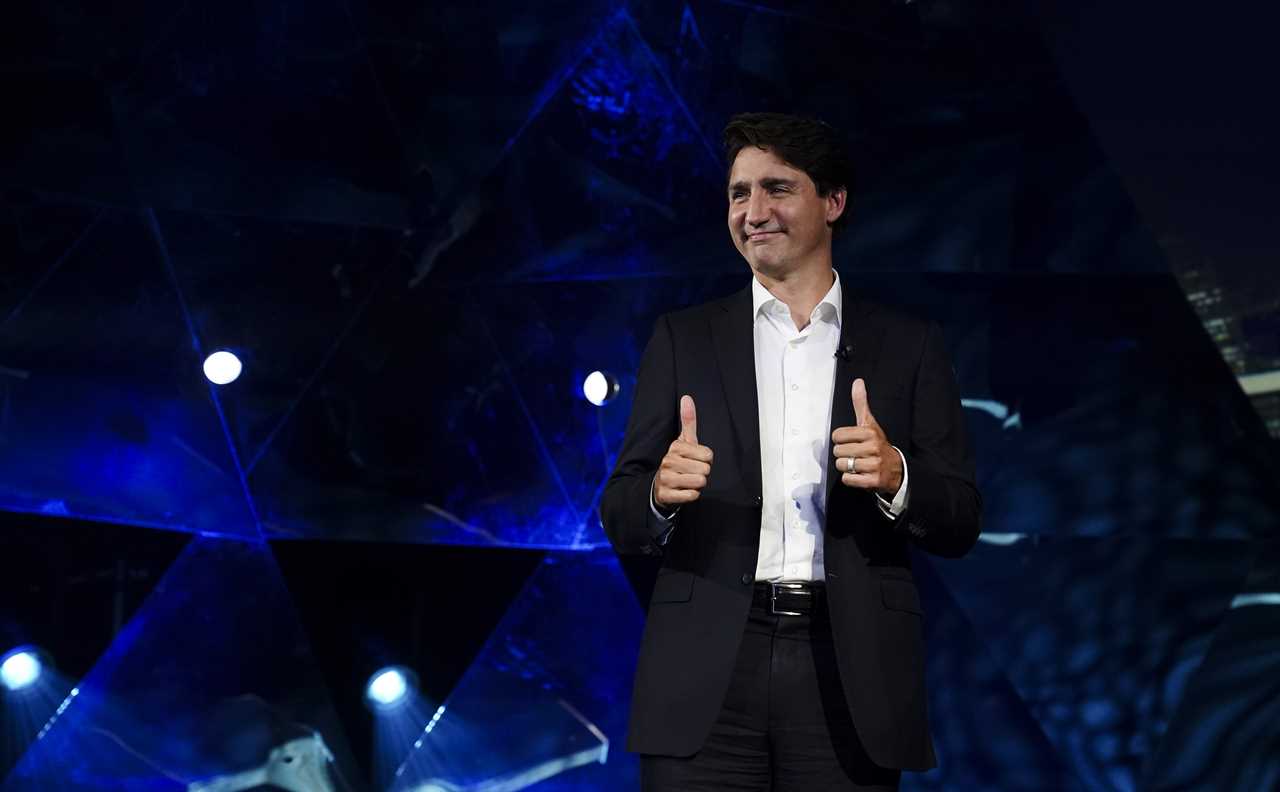
Justin Trudeau won the election. This will be obvious in the weeks ahead: he’ll visit the Clerk of the Privy Council in the next several days to begin implementing his agenda. After probably another fairly extended transition period like the one in 2019, the Governor General will read a Throne Speech largely written by Liberal staffers. Erin O’Toole will sit in the opposition benches facing the government.
I belabour this because expectations and dashed hopes are overrated. Trudeau wanted his majority back, so he stupidly called an election, becoming only the second minority Prime Minister in his own lifetime to call an election without being forced by the opposition. The other was Stephen Harper in 2008. Harper didn’t get his majority that year and Trudeau didn’t get his now. But for the immediate future, this matters little. The rest of Trudeau’s year will almost certainly be more pleasant than the rest of Erin O’Toole’s.
A little historical perspective. Trudeau becomes the eighth Canadian Prime Minister to win three (or more) elections. This includes the warhorses who motored on for win after win, King and Macdonald and Laurier and his dad. It also includes the more tenuous case, closer to his own, of John Diefenbaker, who won two minorities and a majority. Trudeau passed Diefenbaker’s total time in office, a little shy of six years, two weeks ago. He’d have to last almost three more years to surpass Louis St. Laurent, and offhand I’m not sure he’ll try.
But that’s just a guess, and the ramifications of that guess, if it were to prove true, are for us to puzzle over some other day. We can’t live from election to election in this country. We can’t constantly be in campaign mode. Somebody might as well pay some attention to governing as a separate discipline that’s important in its own right, because it’s not as though this country is currently over-burdened with politicians who think that way.
Indeed, if the fates or their proxies the voters dealt Justin Trudeau any kind of haircut on Monday, it was a refusal to reward too handsomely this Prime Minister’s long and unseemly preoccupation with winning more elections instead of working the job. Even Harper, when he called his what-the-heck election in 2008, had endured the indignities of his minority parliament a year longer than Trudeau endured this last one.
Yearning too eagerly for reward affects not just time but tone, and substance. Two months after the COVID-19 lockdown began, in May of 2020, nameless Liberals were salivating in print over what a super opportunity all this dying represented for the party brand. “It’ll be a good time to be a progressive government,” one member of Team Trudeau told Le Devoir back then. “There are a lot of us who are dreaming big, who have an audacious vision for this enormous social and economic challenge before us.”
Another told the same reporter: “I know that behind the scenes, this thinking is underway and I have more confidence than ever, because Justin Trudeau seems to really grasp the immensity of the moment, how important it is for his political legacy, and we’ll have a plan that will be exciting to put to Canadians at the next election.”
Canadians, less preoccupied with the need to reward preening self-regard in the midst of global catastrophe, declined to be excited. They’ve said, in effect: We meant it in 2019. You get all the prerogatives, all the challenges—and all of the limitations—now that you got then. Deal with it.
In 2019 I dared hope that Justin Trudeau, returned to power with a smaller mandate, would take the lesson seriously and change the way he worked and imagined government. He didn’t. He won’t now either. He doesn’t have it in him. He’ll let his staff run every minister’s office through staffers sent by the PMO, bottleneck every decision, sideline skeptics. Maybe it’ll work better the fourth time his party seeks the voters’ favour than it did the second and third. I mean… maybe?
But a win is a win. Trudeau’s problems now are the problems of power. He gets to implement a national daycare network, triple the federal carbon tax and the rebates that go with it, have some awkward chats with the families of Polytechnique victims and with—hoo boy—Joe Biden, watch for at least a year as the same Parliamentary committees that were controlled by the opposition continue to be controlled by the opposition.
Frankly, these problems are fantastic compared to the problems Erin O’Toole will face.
The Conservative leader is—as I write this based on shaky early returns that will probably change—up about two points of popular vote in Ontario and four in Quebec over Andrew Scheer’s 2019 result. That’s after grabbing starkly more centrist positions on climate, firearms, same-sex rights and public finances than Scheer did. And after it became clear there is no demand from a Quebec premier who’s grandly unconcerned with the rest of the country that O’Toole could imagine rejecting. Conservatives can decide what they want to do about all that. There’s an argument for letting a guy who’s made all his first-campaign mistakes apply those lessons to a second campaign. The NDP did that, and look what it got them! Barely more than they got last time, come to think of it. Nobody had a great night.
The post A win’s a win appeared first on Macleans.ca.
-------------------------------
By: Paul Wells
Title: A win’s a win
Sourced From: www.macleans.ca/politics/ottawa/a-wins-a-win/
Published Date: Tue, 21 Sep 2021 04:23:42 +0000
Read More
Did you miss our previous article...
https://badpoliticians.com/world-politics/our-health-is-not-insurmountable
 UK PoliticsWorld PoliticsVideosPrivacy PolicyTerms And Conditions
UK PoliticsWorld PoliticsVideosPrivacy PolicyTerms And Conditions
